Leaving
It is not atypical to find a French film that deals with the bourgeois family in distress, from attack from either outside or from within and to deal with marital strife in the middle of some form of crisis. There was therefore no surprise to begin watching the critically acclaimed Leaving (Partir) and to notice that the central character, Suzanne, begins to have feelings for a builder who works for a guy who has been hired by her husband to do some cash in hand, off the books work to refurbish/reconfigure his garage.
You know very early on that Suzanne will begin having an affair with the Catalan labourer, Ivan, and choose to leave her husband, Samuel, a rich doctor with plenty of local political connections. This is exactly what happens as, although Suzanne is in a settled and fairly happy relationship with two teenage children, what she wants is a bit of excitement and, when she finds a spark between her and Ivan, what follows is some rough sex with a bit of animalistic excitement. When she confesses what has happened to her husband and says that although she went to bed with him, it won't happen again and the affair has finished, she finds that she can't stay away from him and the affair continues.
Deciding that the only fair way to treat Samuel and her children, Suzanne decides to leave her husband and move in with Ivan whilst things are sorted out. Unfortunately, this is extremely difficult as she has only just begun to go back to work as a physiotherapist following a long break while she made a home and brought up the children and now finds that she can't (as she had planned) work from home and the premises she had for six months in town has been sold to someone else.
It doesn't help that Samuel doesn't want to see Suzanne being happy and regards the affair as an affront to his dignity and social standing and will either destroy her and Ivan or see her back in his home as the dutiful wife and mother. The film becomes a battle of wits and wills with neither prepared to back down, no matter how happy Suzanne is or how tightly Samuel turns the screw.
As Suzanne, Kristin Scott Thomas continues in the vein of remarkable on-screen performances in both English and French (she is married to a Frenchman and is fluent in both languages) and the role was written for her so that Suzanne is English but has moved to France where she settled down in Nîmes. Her performance was predictably brilliant but the real surprise came from Sergi López, who I last saw playing the tyrannical Captain Vidal in Guillermo del Toro's brilliant fantasy film Pan's Labyrinth in which he was a great deal slimmer and speaking fluent Spanish rather than French in this film.
Writer-director Catherine Corsini, who co-wrote the screenplay with Gaëlle Macé, treats the subject matter fairly realistically and sensitively, creating realistic characters and scenarios so that nothing seems false and, although this is fairly typical French drama/romance/thriller in the same tradition as Hidden and Tell No One, it is an extremely interesting and engrossing watch. The film begins with a scene showing a couple in bed (later revealed to be Suzanne and Samuel) with the woman lying wide awake before getting up and going to another room in the house and then, with an exterior shot, a gunshot is heard. The next thing you see is a black screen with the principal actors' names followed by that title and then the opening scene with the caption 'Six mois plus tôt' (Six months earlier) with Samuel telling the builder exactly what he wants from the garage and the events unfolding.
Unless the film is exceptional (such as Hidden and Tell No One), I can find French family dramas a little pretentious and boring but this one had me hooked from the outset and I thought it was extremely interesting to have the two main characters speaking their second language, something of which they are both aware and there is one scene in which they want to hear the other say something in their native tongue. This is a very well written and directed film with superb performances by the main cast and those who like French films and family dramas in general will find a great deal to like here.
The Disc
Extra Features
A rather paltry selection of a short interview section with contributions from Kristin Scott Thomas and Catherine Corsini and the theatrical trailer but the interviews are interesting, revealing and worth a watch.
The Picture
I watched this on a Full HD plasma using a DVD upscaler and the picture quality is absolutely superb, switching from urban locations and interior shots to scenes shot on a beach and in the hills where the colours are extremely vibrant and well defined on screen. Flesh tones and contrast levels are consistent throughout, making the superb cinematography something well worth paying attention to and the choice of locations are integral to the plot.
The Sound
You have the choice of Dolby Digital 5.1 surround or 2.0 stereo and either will do the job very well as the film is largely front loaded with the dialogue and score coming from the centre channel and some of the score and atmospherics coming from the two front surrounds; the rear surrounds are barely used and I couldn't tell much of a difference between the surround and stereo track.
The English subtitles are very clear and easy to read and free of grammatical or spelling errors. They translate the French faithfully enough but it is interesting to see how some French sayings are given an English spin on the subtitles.
Final Thoughts
Leaving is an extremely accomplished piece of work that will find itself competing with numerous other similarly themed films which are just that bit better. It is still a fine piece of work showcasing Catherine Corsini as a filmmaker to be reckoned with and underscoring just how fine screen performers Kristin Scott Thomas, Sergi López and Yvan Attal are, all of them showcasing their talents and, in the case of Scott Thomas and López, their linguistic skills.
The disc isn't exactly bulging with extra features so this is probably only something you will die if you really liked it at the cinema (it wasn't shown at my local multiplex but was given an airing at the arthouse cinema) and, if films like this interest you, then it is worth at least a rental.
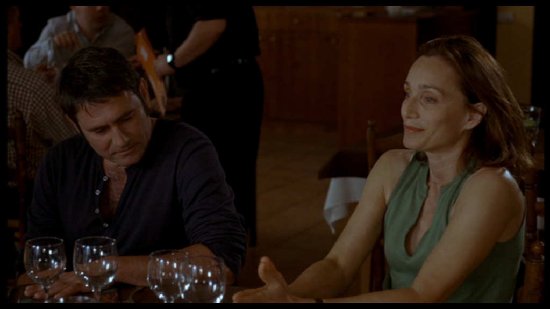
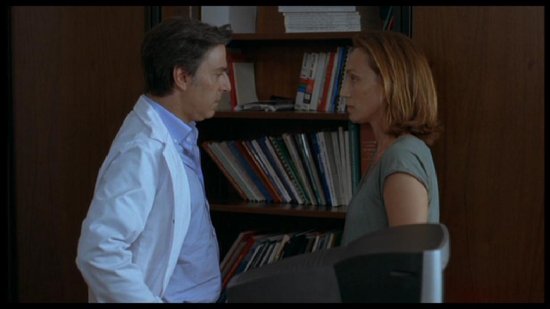
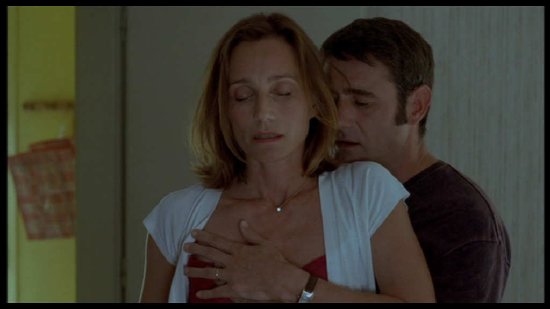
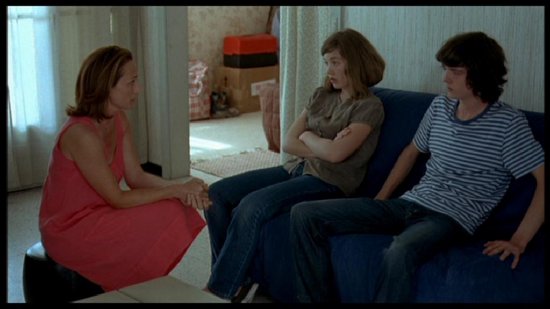
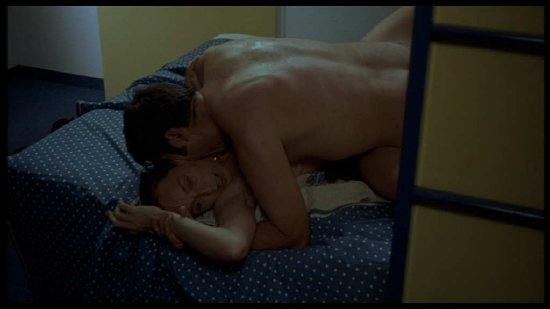
Your Opinions and Comments
Be the first to post a comment!